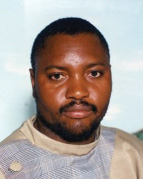
Recently President Robert Mugabe stirred up a hornet’s nest by lampooning Kalangas as insufficiently educated.
The president claimed that due to their thin educational credentials, Kalangas bid for menial jobs and engage in petty crimes in South Africa.
People refused to view this as an innocent slip of the tongue.

They viewed it as a deliberately constructed remark garnished with hatred and callousness.
This exposed Mugabe’s destructive bitterness against a minority tribe.
There has been speculation, conjecture and even the blameworthy silence by key players in efforts to either uncover the source of bitterness or to cover up the reckless diatribe.
Most high-ranking Kalangas within Zanu PF provided the loudest form of cover through a stubborn silence.
Simon Khaya Moyo, a full-blooded Kalanga from Sanzukwe area is in this category.
- Chamisa under fire over US$120K donation
- Mavhunga puts DeMbare into Chibuku quarterfinals
- Pension funds bet on Cabora Bassa oilfields
- Councils defy govt fire tender directive
Keep Reading
Khaya Moyo, one of the very few Kalangas with access to Mugabe, ought to have assured his fellow Kalangas that the statement was a slip of the tongue due to lapses in Mugabe’s brain functionality.
Mugabe’s belief about Kalangas doing dirty work for a pittance due to little education might have been reinforced when Khaya Moyo gave him a kneeling tribute as an instalment for political favours.
Khaya Moyo behaved like a woman in a polygamous marriage who earns a right to an intimate encounter with the husband through an overbearing public display of sensuality.
Naturally displays of un-learnedness by Kalangas close to Mugabe have emboldened him into making such disparaging remarks.
Maybe Information minister Jonathan Moyo’s performance would be better!
Moyo attempted to cover up for his boss’ indiscretion in the most implausible way. The minister, undeniably Kalanga, claimed that Mugabe used the jibe in a historic context.
This was rather naive and unlearned coming from a professor of so many books.
The professor ought to know that referring to Afro-Americans as “negroes” in an historic context is still offensive.
Attempts to uncover the foundation of Mugabe’s hate remark through facts, speculation and conjecture were vociferous.
People carried a surgical analysis of Zimbabwe’s modern history with the hope of revealing the source of the presidential bitterness.
Mugabe’s stint as a teacher at Empandeni Mission came into the picture.
For the unknowing, Empandeni is a Catholic mission school in Plumtree district and Plumtree is the default modern capital of the Kalanga people.
Possibly Kalangas were horrible towards Mugabe during his teaching stint at Empandeni.
He could not have amassed so much bitterness towards Kalangas unless he had a traumatic experience.
Maybe he was tribally discriminated against by the Kalanga villagers at Empandeni or had some serious fights with the locals.
If that be the case, he should say so for reparations and restitutions to be made instead of trading perpetual vindictiveness.
Oral narratives from Empandeni villagers indicate that during the liberation war, Zanla forces attempted to impose their system of “pungwes” in the area.
It is intriguing that apart from making forays in Beitbridge due to its proximity to Mwenezi, Zanla did not have much interest in Matabeleland except for Empandeni area.
Such special interest only strengthens the suspicion that Mugabe had unusual experiences at Empandeni.
Why would he sacrifice his men in hostile and unfamiliar territory where they were hunted by both Rhodesian and Zipra forces?
During the dissident menace, a scorned Mugabe made sure the 5 Brigade committed atrocities in Tsholotsho, Kezi, Plumtree and Matopo, all Kalanga areas.
The severity of the curfew regime confirmed Mugabe’s pre-existing issues against humble Kalangas.
His private army imposed the Zanu PF political dogma by bungling schoolchildren into youth brigades and forcing them to sing songs demeaning late Vice-President Joshua Nkomo.
Women were forcibly defiled and most able-bodied men were killed in cold blood.
Mugabe thought that the punitive curfew would help kill off Zapu domination in the south of the country in preparation for the 1985 elections.
He deployed units from the Presidential Guard to enforce the curfew in Plumtree with the then Major Douglas Nyikayaramba in charge.
Nyikayaramba gathered the people of Plumtree town and forced them to chant Zanu PF slogans.
When he did not get the desired response, he threatened the people with more brutality.
In December 1984, Kalangas in Plumtree town experienced firsthand the repercussions of disappointing the politicised Nyikayaramba.
Zanu PF youths imposed their evil will upon the people with the overtly support of soldiers from the Presidential Guard and details from covert operations after the party had sent Mark Dube, Enos Nkala and Callistus Ndlovu to instigate a situation of disquiet.
Overnight, Plumtree was conquered and became a Zanu PF stronghold.
Mugabe was naturally overjoyed that he had finally subdued the Kalangas of Plumtree into his political domain as everyone became an active Zanu PF member through coercion.
New structures were put in place and Mugabe had election victory in sight.
When the 1985 elections came Zanu PF lost dismally in Plumtree despite all the Kalangas holding membership cards.
This resolute defiance riled him while the Kalanga insolence inflicted a huge dent in his ego. Mugabe has placed a bounty on all Kalanga heads.










